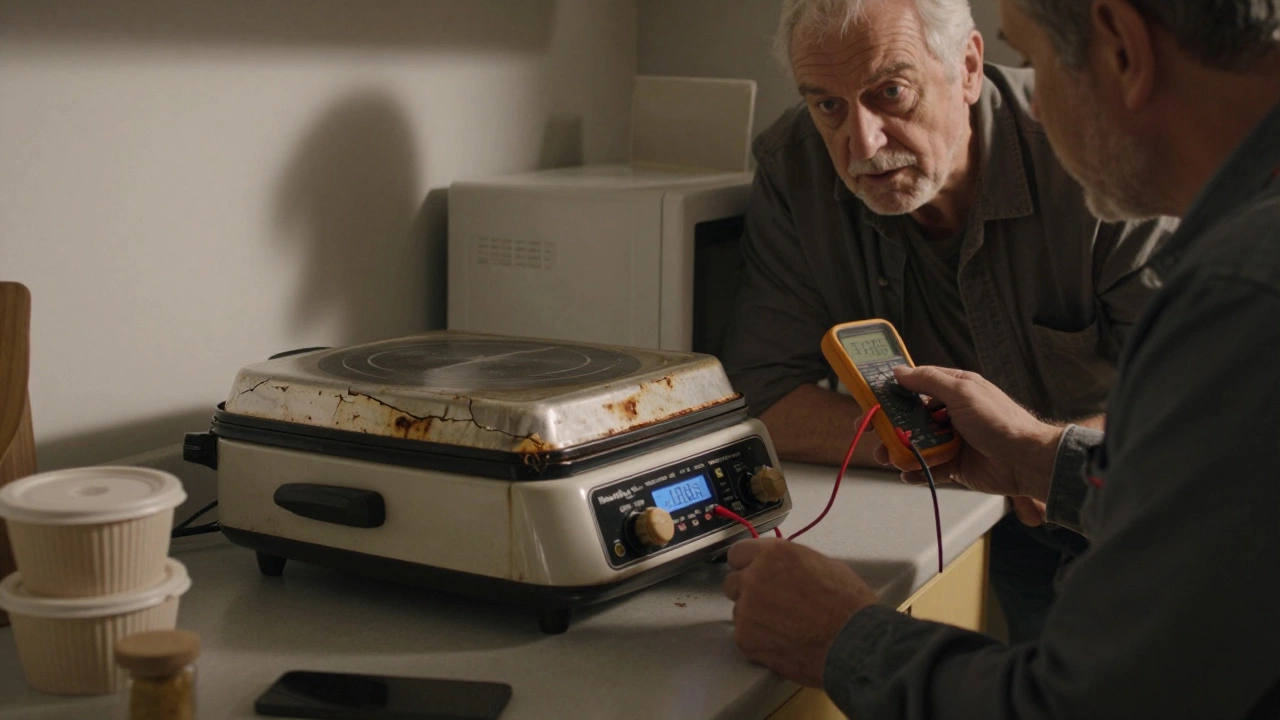Cooker Lifespan: What to Expect and How to Keep It Going
People often ask, "How long will my cooker survive?" The answer isn’t a one‑size‑fits‑all number, but you can get a solid estimate by looking at the type of cooker, how you use it, and how well you maintain it.
Typical Lifespan by Cooker Type
Electric ovens usually last between 10 and 15 years. Gas ovens tend to stretch a bit longer, often 12 to 18 years, because they have fewer electrical parts that can fail. Built‑in hobs and cooktops follow a similar pattern: electric hobs 8‑12 years, gas hobs 10‑15 years. If you own a double‑oven or a convection model, expect the higher‑end features to wear out sooner than the basic heating elements.
These ranges assume normal household use – cooking a few meals a day, cleaning the surface regularly, and not pushing the appliance beyond its design limits. Heavy‑duty kitchens that fry, broil, and bake all day will see the clock move faster.
Tips to Stretch Your Cooker’s Life
1. Clean regularly. Grease buildup on burners and inside the oven can cause overheating. Wipe spills right away and run a self‑clean cycle if your oven has one.
2. Check the seals. Oven door gaskets lose elasticity over time. A worn seal lets heat escape, making the oven work harder and shortening component life.
3. Use the right cookware. Heavy cast‑iron pans can stress glass‑ceramic hobs, while small pots on a large burner waste energy and cause uneven heating.
4. Don’t overload the power. Plugging multiple high‑wattage appliances into the same circuit can cause voltage drops that stress the cooker’s electronics.
5. Schedule a professional check. A yearly inspection can spot loose wires, worn heating elements, or faulty thermostats before they cause a breakdown.
Following these habits can add several years to the usual lifespan, often pushing a 12‑year oven past the 15‑year mark.
Even with the best care, every cooker shows warning signs when it’s nearing the end of its useful life. Look out for uneven heating, frequent error codes, strange noises, or a sudden spike in energy bills. When these symptoms appear, weigh the cost of repair against the age of the unit. If the cooker is already past its typical lifespan, replacing it is usually the smarter move.In short, expect an electric oven to last about a decade, a gas oven a bit longer, and keep it clean, sealed, and properly wired. Regular maintenance and attentive use are the cheapest ways to get the most out of your cooker.
Is It Worth Repairing a Cooker? Real Costs, Lifespan, and When to Replace
0 Comments
Deciding whether to repair or replace a cooker? Learn the real costs, safety risks, and when it makes sense to fix it versus buying new-based on age, energy use, and repair history.
Read MoreUnderstanding the Lifespan of Your Cooker and When to Consider Repairs
0 Comments
Cookers are vital in our kitchens, serving as the primary hub for cooking our meals. Understanding the lifespan of a cooker and identifying signs of wear can help you decide when maintenance or replacement is needed. This article will explore the average life expectancy of different types of cookers, useful tips for extending their life, and discuss common performance issues. It also provides practical advice on when to call a professional for repairs.
Read More
